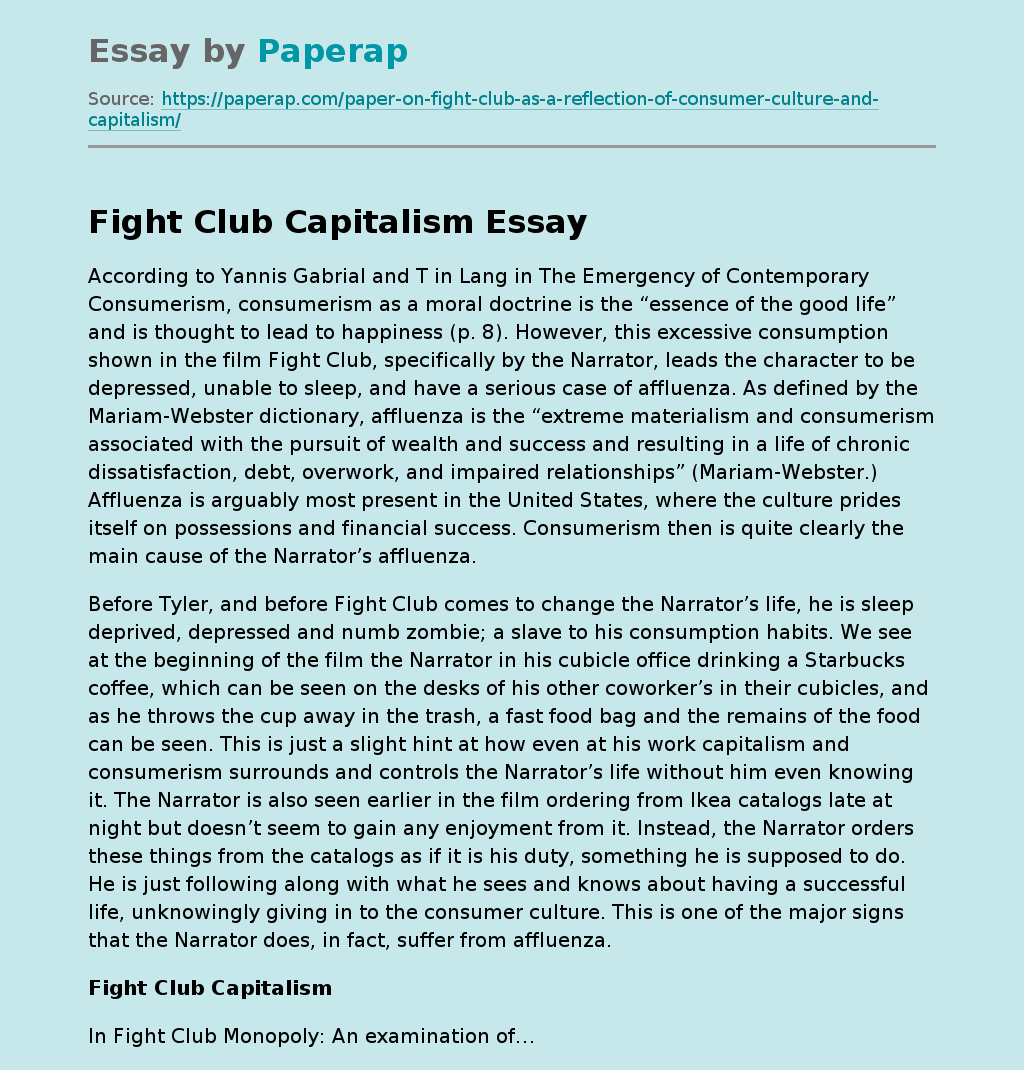Fight Club Capitalism
According to Yannis Gabrial and T in Lang in The Emergency of Contemporary Consumerism, consumerism as a moral doctrine is the “essence of the good life” and is thought to lead to happiness (p. 8). However, this excessive consumption shown in the film Fight Club, specifically by the Narrator, leads the character to be depressed, unable to sleep, and have a serious case of affluenza. As defined by the Mariam-Webster dictionary, affluenza is the “extreme materialism and consumerism associated with the pursuit of wealth and success and resulting in a life of chronic dissatisfaction, debt, overwork, and impaired relationships” (Mariam-Webster.
) Affluenza is arguably most present in the United States, where the culture prides itself on possessions and financial success. Consumerism then is quite clearly the main cause of the Narrator’s affluenza.
Before Tyler, and before Fight Club comes to change the Narrator’s life, he is sleep deprived, depressed and numb zombie; a slave to his consumption habits. We see at the beginning of the film the Narrator in his cubicle office drinking a Starbucks coffee, which can be seen on the desks of his other coworker’s in their cubicles, and as he throws the cup away in the trash, a fast food bag and the remains of the food can be seen.
Fight Club Capitalism. (2019, Dec 05). Retrieved from https://paperap.com/paper-on-fight-club-as-a-reflection-of-consumer-culture-and-capitalism/
